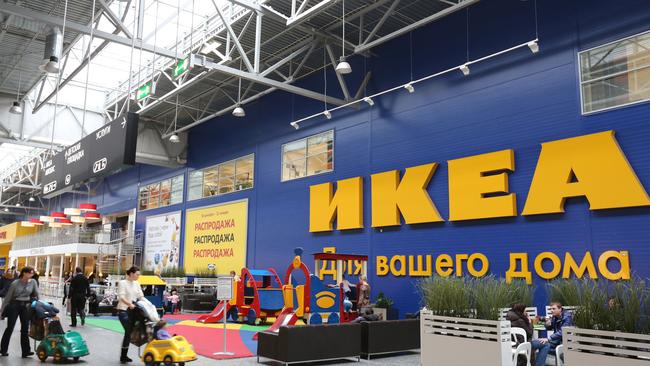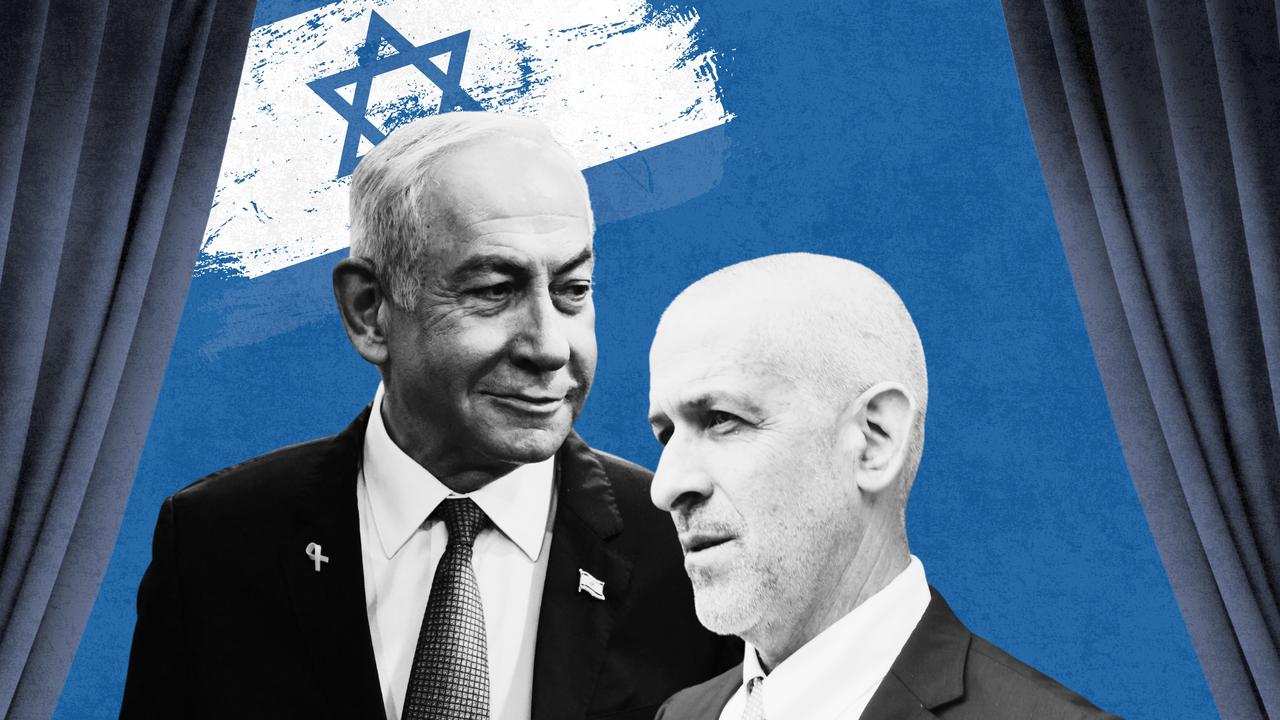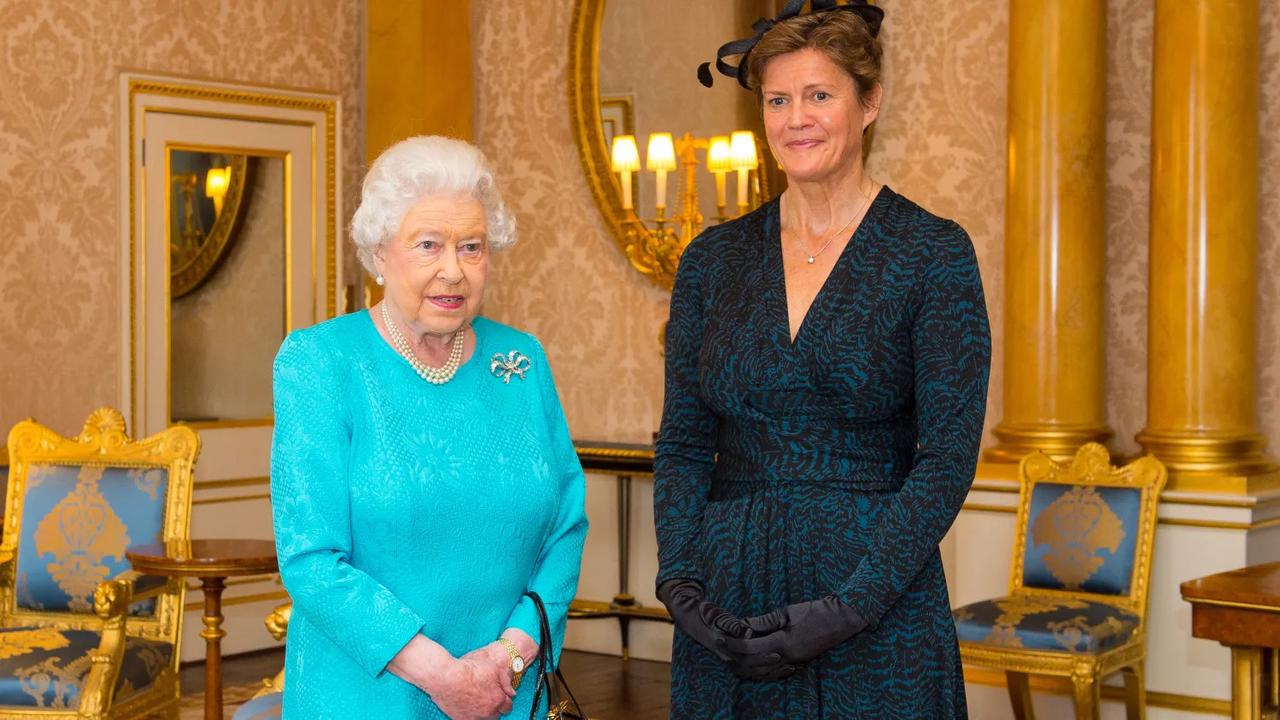From Armani to iPhones: how Russians avoid sanctions to buy luxury goods
As its missiles rain down on Ukraine, a steady stream of western goods has continued to pour into Russia from friendly countries.

As its missiles rain down on Ukraine, a steady stream of western goods, from computer chips to smartphones, has continued to pour into Russia from friendly countries.
President Putin approved a scheme known as parallel imports in June. It allows Russian companies to bring in western products from third countries without the permission of the trademark owner.
The backdoor imports through China and Turkey, as well as former Soviet states such as Armenia, Belarus and Kazakhstan, have softened the blow of unprecedented western sanctions that were imposed on Russia over the invasion of Ukraine.
On Ozon.ru, Russia’s top online shopping website, the latest iPhone models are available with a two-hour delivery time, making a mockery of Apple’s decision to pull out of the country over the war.
More significantly, Russia has also been able to acquire the technology to power its attacks on Kyiv and other Ukrainian cities by importing advanced semiconductors, which are used in the navigation systems of cruise missiles. Russia has attempted unsuccessfully since the Soviet era to produce its own high-quality semiconductors and its missile production program is heavily dependent on western technology.
Kazakhstan, a former Soviet state that has close ties to Moscow, exported semiconductors worth $3.7 million last year to Russia, a 300-fold increase from before the war. China has also provided Russia with microchips and other advanced technology. However, up to 40 per cent of the semiconductors imported from China are duds, reported Kommersant, a Russian business newspaper. It said that the rate before the war was two per cent.

Dozens of western companies stopped doing business in Russia after Putin ordered troops into Ukraine but their departure has had little effect on the average Russian shopper. Encouraged by the Kremlin, Russian companies have continued to import furniture from Ikea, children’s toys that were produced in the United States, and luxury items from brands like Giorgio Armani and Yves Saint Laurent. Pochta Global, a Hong-Kong based company that has links to Russia’s national postal service, allows Russians to order items from western firms such as Nike, Zara and H&M. The goods are delivered to warehouses in Hong Kong before being shipped onwards to Russian customers. The Kremlin has also urged Russians to download pirated versions of western films to “bankrupt” Netflix and other western streaming companies. “Pretty much everything is accessible and still will be in the future,” Ram Ben Tzion, head of Publican, a company that monitors shipping fraud, told Reuters. Yevgeny Popov, an MP with Putin’s ruling party, boasted that “parallel imports are working super-actively”.
At least some of the loopholes exploited by Russia to evade sanctions now look set to close, however. Kazakhstan, which has a 4,700-mile border with Russia, said that it would impose additional checks on exports to its neighbour in a drive to stop “underground” trade with Moscow.
There are concerns in Kazakhstan that its economy could be targeted by western countries if it is seen to be aiding Putin’s regime. Antony Blinken, the US secretary of state, visited Astana, the Kazakh capital, last month. “[Our government] will not allow the circumvention of western sanctions,” a government official told the Eurasianet website. “We understand the risks of secondary sanctions.”
Turkey, a Nato member, also began blocking the transit of sanctioned goods to Russia this month, the Moscow-based Kommersant FM radio station reported, citing logistics firms. Turkey exported a record amount of goods worth dollars 738 million to Russia in August. Ankara has not commented on the report. Dmitry Peskov, the Kremlin spokesman, said that western countries had been exerting “open, brutal pressure” on countries that continued to do business with Russia. He did not give details.
The Times



To join the conversation, please log in. Don't have an account? Register
Join the conversation, you are commenting as Logout